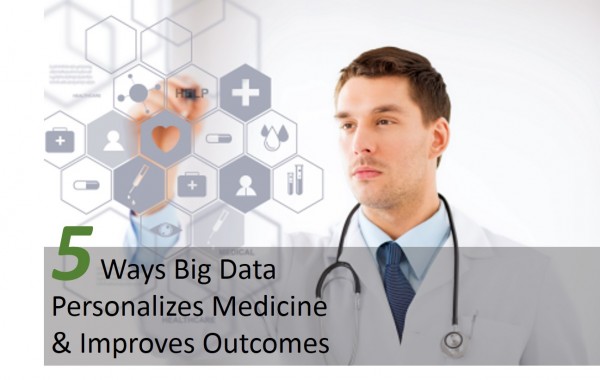I enjoyed an article today in IT Business Edge about the ways that Big Data is improving outcomes. We hear that all the time, right? But what does it really mean? Why does more (and better) patient data lead to improved healthcare for all? When business intelligence is leveraged properly to deliver insights to healthcare providers, we see the following:
 Learning what we never knew before:
Learning what we never knew before:
“Allowing for previously unknown factors involved in disease to be discovered and utilized as drug targets or disease biomarkers.”
- Comparing data points from various sources to individualize treatment plans, improving outcomes.
“We are able to align and compare multiple data points from various sources, tailoring individualized treatment plans for each patient.”
- A move from subjective interpretation to objective diagnosis.A coworker of mine said to me yesterday, “Can you imagine when our kids are older? They’ll be laughing at our stories of how doctors once said to us, ‘Based on your symptoms, I think you have [X disease].'”
She’s right. Diagnoses vary from physician to physician based on his or her background and experience. Not any more! As this article states, we’re facing a “datafication” of patient samples.
“A vast quantity of knowledge that can be statistically analyzed and quickly reviewed by multiple clinicians for solid diagnosis”
- Better – and faster – decisions about treatment as a result of more and better patient data
“Clinicians can systematically extract more information from each patient without requiring multiple rounds of testing.” - More accurate diagnosis and more appropriate spending on treatments due to reproducible testing”Consistently reproducible test results are possible between clinicians and doctors for more accurate diagnosis and appropriate spending on therapy options.”
